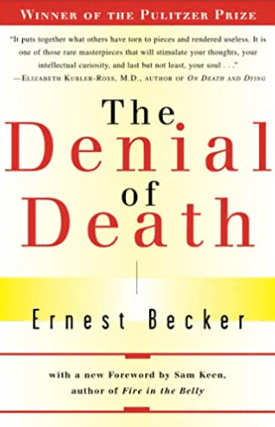Today’s author is Prince of Peace member, Paul Sponheim.
I’m thinking a lot these days about one of the words that is prominent in the Romans text from yesterday. It’s “death”. That connects well with me because these days I’m thinking a lot about death. I’ve lost most of my friends these last few years. The names will be familiar to many of you readers: Lowell, Terry, Dan and Sally, Lee and Lois, Lloyd and Ann. And of course my beloved Nell on March 17th in 2020.

That’s a lot of loss, so perhaps it is not strange that I am thinking much about death. But I’ve got a lot of company. There is a strange complexity in our American thinking about death. Perhaps there are paradoxes in this thinking. Ernest Becker thought so when he wrote The Denial of Death back in 1973. My copy is pretty beat-up but I think the burly longshoreman can still be our teacher. He writes that “ . . . the irony of man’s condition is that the deepest need is to be free of the anxiety of death and annihilation, but it is life itself which awakens it and so we must shrink from being fully alive.” (1973, 66) Aah, yes, how we think about death has consequences.
Atul Gawande suggests how deep the roots of this anxiety go when this Harvard medical school physician writes against ‘medicalizing “being mortal”. In a book bearing that phrase for a title, Gawande reminds us that while doctors have learned to “fix” things,
death always wins in the end. Christians are not exempt from this contest. We have stood by the sickbed or been in that bed when families debate about another test, a different dosage, a new medication. We are in the line waiting for an approach proportionate to the problem. And the apostle Paul has one. We can put this in three words: union with Christ. Tomorrow we will speak of this.
